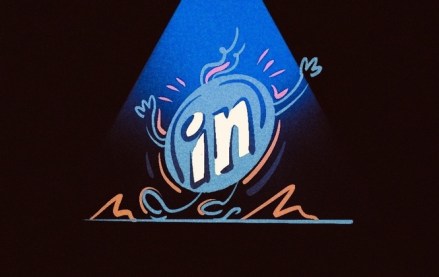‘I’m doing three beats right now’: Confessions of a millennial newspaper reporter

This article is part of our Confessions series, in which we trade anonymity for candor to get an unvarnished look at the people, processes and problems inside the industry. More from the series →
Newspapers have struggled more than any print media in finding a sustainable digital media model. For the latest in our anonymous Confessions series, we talked to a junior reporter who’s worked at Gannett and Tronc about life in the daily newspaper trenches. Here’s our interview, lightly edited and condensed:
Newspapers aren’t exactly a growth industry. Did you always want to work for newspapers?
I’d been involved in the student newspaper at college and that piqued my interest. I went to grad school for journalism. I was kind of aware of all the reservations people brought up. But I was passionate about journalism. All the news I read had always come from print newspapers. There’s something about the style of print journalism I like. I was drawn to the brand and reputation and history of print.
How did your expectations match up with reality?
Being understaffed and having limited resources can have a direct impact on the journalism you’re able to produce. I always thought you could do good journalism anywhere, and I still do, but the places I’ve worked have been really understaffed. I could see the quality of the content we were producing decline. That was frustrating.
Give a specific.
We have, like, one copy editor looking at more than one newspaper per shift. And that copy editor has duties outside copy editing, like laying out the pages. Mistakes get through, and that erodes the credibility of the paper. It’s one of the ironies because the newspapers are focused on growing an audience, but you’re losing that when you make mistakes. There’s that term, feeding the beast. You have to put out a print newspaper every day. I’ve seen reporters leave and companies be very slow or unable to replace them. I’m doing three beats right now. I’m barely scratching the surface on these. It’s an injustice to readers.
Digital isn’t new for these newsrooms. How did you see them balancing the needs of print and digital?
At Gannett, it was right when the push was happened to be more digitally focused. It was called Newsroom of the Future. The deadlines are earlier. That was a necessity. Titles changed: Editors became “coaches” and copy editors became “producers.” Their email signatures changed and everything. I think we all feel there were a lot of things the print industry needs to be focused on, and changing a title from editor to coach isn’t one of them.
How did people adapt to all this?
We each had to reapply for our positions. You had people who had been there for a number of years, and it leaves a bad taste in their mouth. It also came along with changes to social media. We were asked to have a bigger social media presence individually. It was just stressful. People were skeptical of the whole package. It didn’t do any favors to morale.
Have you found newspapers attractive places to work as a millennial?
All my colleagues have generally been in their 20s. Maybe they’re not doing enough to keep the veteran reporters around. The salary can’t keep up as people grow. The schedule is not conducive to families. Both of the jobs I had paid in the low 30 thousands. You know getting in it’s going to be a low salary. I was aware and was ready to make it work. But as you get older you think, 30 is OK if I’m living in a one-bedroom apartment, but what if I’m going to get married and have kids?
Did people ever complain about all these changes?
There was a group grunt. But a lot of stuff was handed down from corporate. You could complain all you want but you know if you were complaining to an editor, they weren’t the ones calling the shots. So you grin and bear it.
Sounds demoralizing. Do you think you’ll stay in journalism?
I don’t know. If you asked me that two years ago I would have said definitely. Now I’m more open to other things. Most of the reporters I know get into journalism because they want to make a positive change. Especially the print reporters. So I would hope if I do leave journalism to find something in a nonprofit.
What’s the one thing you wish newspapers would do that they’re not?
They need to invest more in the journalism side of it. Hiring more people would free reporters to do more work that’s rewarding. That’s the sad part — that’s the only thing they can do and they can’t do it.
More in Media

Remedies vs reality: Publishers weigh what Google’s ad tech break up could really deliver
Publishers are content to see some form of recompense, but cynical that any remedy will occur in time to repair the damage currently being done by declining referral traffic.

LinkedIn algorithm tweaks lead to views slump for some creators
Over the past two months, seven LinkedIn creators and talent managers have reported a downturn in video impressions on the platform compared to the beginning of 2025, a period during which LinkedIn reported a 36-percent year-over-year increase in overall video viewership.

How Wirecutter is switching up its content and audience strategy to tackle search changes
The New York Times’ Wirecutter is finding new ways to tweak SEO strategy, package content and expand coverage to continue growing revenue.








